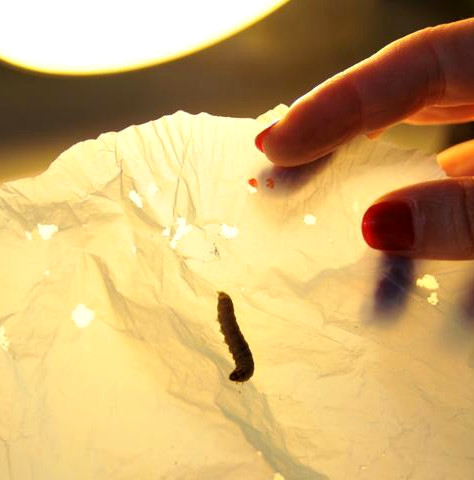Plastic-munching caterpillars uncovered

“We have found that the larva of a common insect, Galleria mellonella, is able to biodegrade one of the toughest, most resilient, and most used plastics: polyethylene,” says researcher Federica Bertocchini.
Like a lot of important discoveries, the finding happened quite by accident.
Bertocchini and her colleagues noticed that plastic bags containing wax worms quickly became riddled with holes, while further investigations showed that the worms can start breaking down a plastic bag in less than an hour.
Subsequent studies showed that the wax worms were not only ingesting the plastic, they were also chemically transforming the polyethylene into ethylene glycol.
Wax worms do not normally eat plastic, so the researchers suspect that their ability is a byproduct of their natural habits.
Wax moths lay their eggs inside beehives. The worms hatch and grow on beeswax, which is composed of a highly diverse mixture of lipid compounds. The researchers say the molecular details of wax biodegradation require further investigation, but it is likely that digesting beeswax and polyethylene involves breaking down similar types of chemical bonds.
“Wax is a polymer, a sort of ‘natural plastic’, and has a chemical structure not dissimilar to polyethylene,” Bertocchini says.
As the molecular details of the process become known, the researchers say it could be used to devise a biotechnological solution to managing polyethylene waste.
“We are planning to implement this finding into a viable way to get rid of plastic waste, working towards a solution to save our oceans, rivers, and all the environment from the unavoidable consequences of plastic accumulation,” Bertocchini says.
“However,” she adds, “we should not feel justified to dump polyethylene deliberately in our environment just because we now know how to bio-degrade it.”







 Print
Print